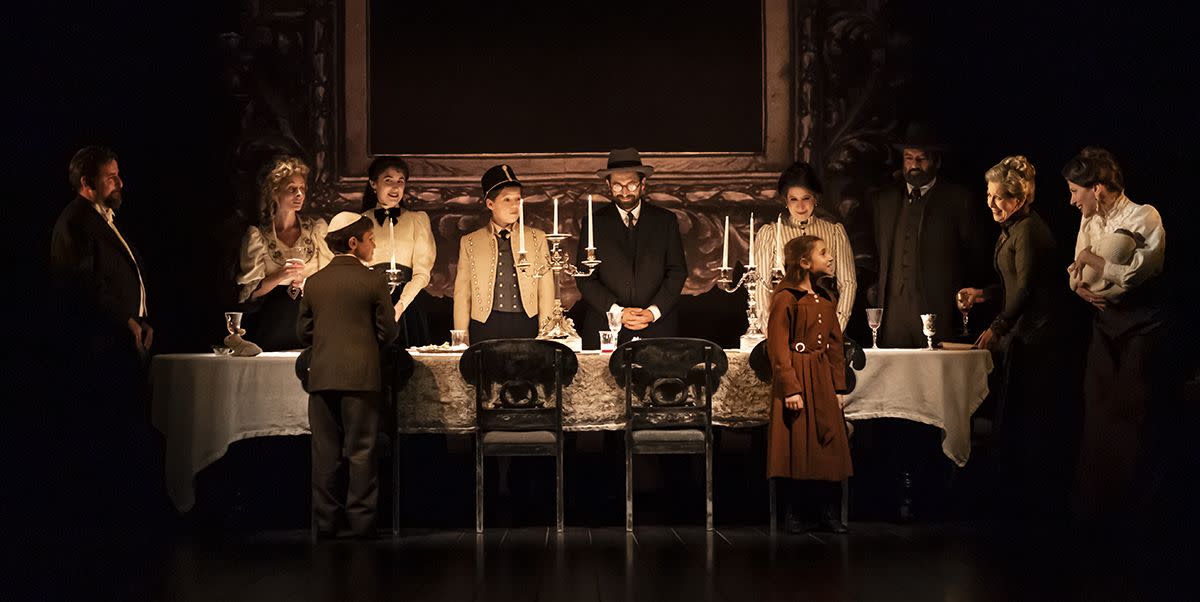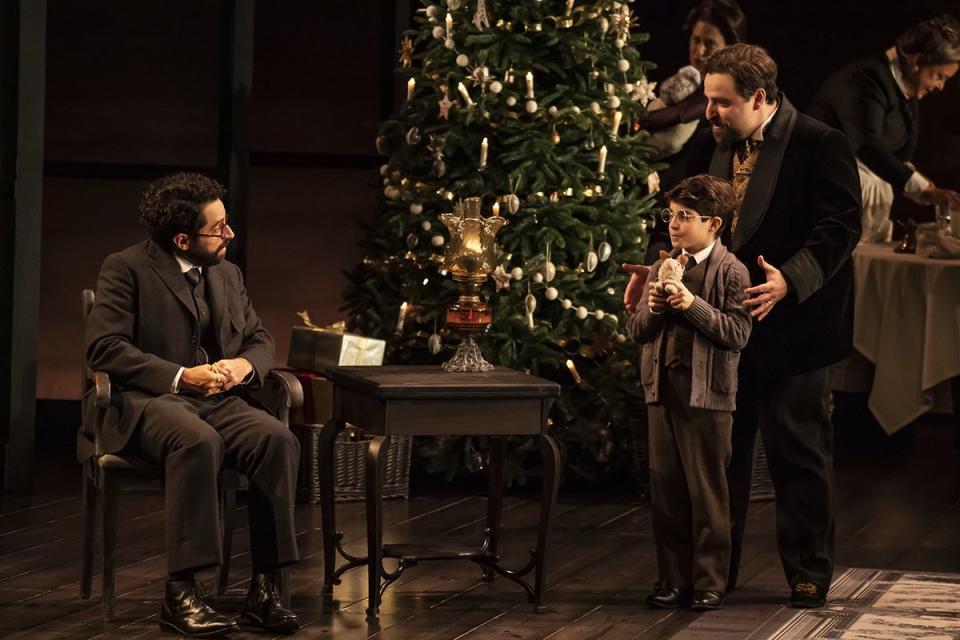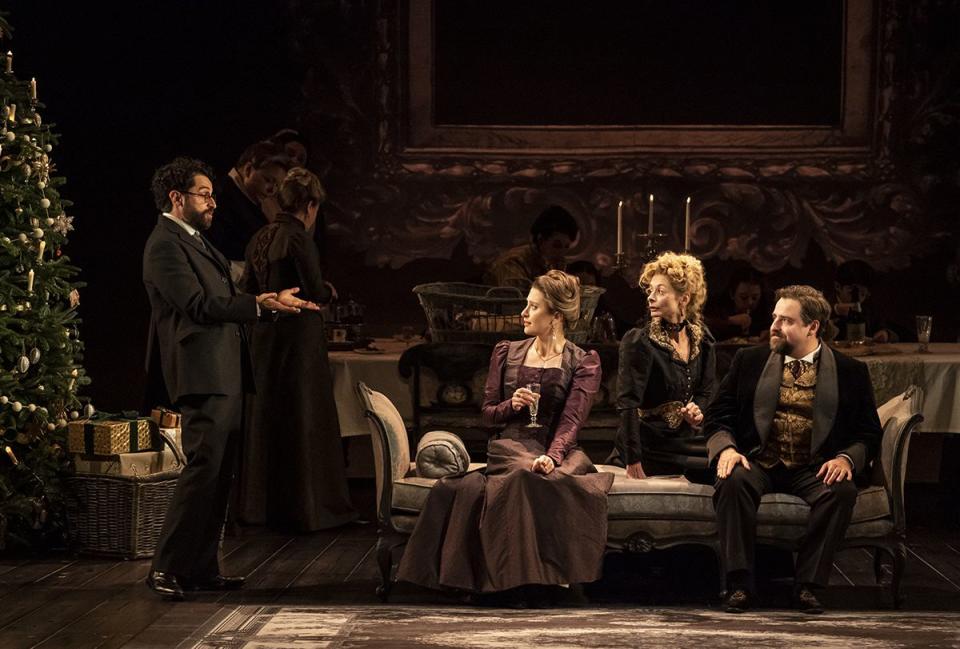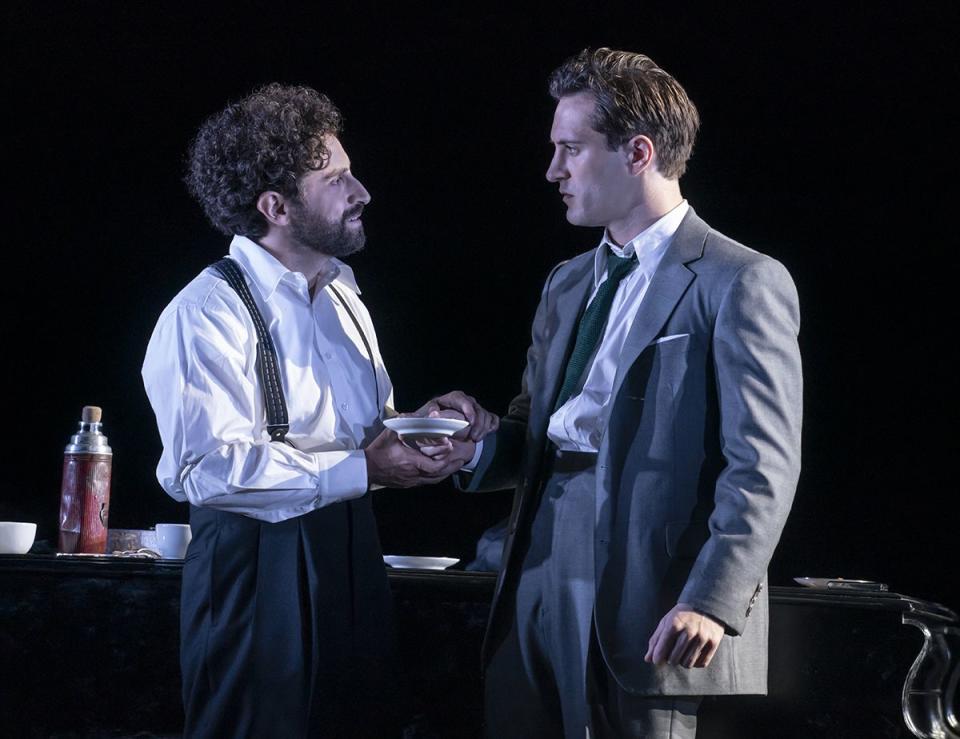Brandon Uranowitz on the Triumphs and Trials of Broadway's Leopoldstadt

The story that Leopoldstadt tells might begin in 1938, but it’s eerily timely today. Tom Stoppard’s slightly autobiographical play—on now at Broadway’s Longacre Theatre—follows the Merz family, somewhat grand Viennese Jews whose faith and nationality put them in history’s crosshairs, across generations, or at least what remains of them. It would be a powerful work even in a vacuum, but in a world where rising antisemitism is impossible to ignore, it feels especially haunting.
Brandon Uranowitz, the Tony Award-nominated veteran of work including Burn This and The Band’s Visit, plays both Ludwig (a Merz brother-in-law, early in the play) and Nathan (a descendant in the harrowing final scene). “I feel like as an actor and as a Jewish actor, there is absolutely nothing else I should be doing right now other than this play,” he says, “despite how painful, difficult, exhausting, and scary it is.”

Here, he shares with T&C the road that led him to Leopoldstadt and the reality of performing it just when audiences might need it most.
You’re playing not one but two parts in a new Tom Stoppard work on Broadway. How did that happen?
It was my first in-person audition since the pandemic started. Obviously things had picked up a little bit before then; I had done Assassins, but that was pre-pandemic. Other than that, I had just been putting myself on tape for things. This was my first in-person audition, and it was initially only for Ludwig. But I went in for Ludwig, and that went very well but they wanted to see what I did with Nathan. For the callback, I did Nathan and Ludwig, and it was kind of a magical experience. Patrick [Marber, the director] offered it to me in the room, which has never happened to me before.
When I read the play it knocked the wind out of me, and I was not expecting that. Every actor dreams of being in a Tom Stoppard play, let alone a new Tom Stoppard play, let alone a new Tom Stoppard play that talks about my own actual family experience and history. And so, when I read it, I tried to temper my expectations, but a huge part of me was, “I have to be in this play. I don't know what I'll do if I don't get this part.”

What does it feel like to go on stage and tell this story, knowing that there’s similar discrimination and hate still raging in the world?
It's a double-edged sword. It's both extremely painful and yet incredibly vital. And I feel like as an actor, and as a Jewish actor, there is absolutely nothing else I should be doing right now, despite how painful and difficult and exhausting and scary it is.
When we reach the end of the play, we can feel and hear the audience going through catharsis and being completely moved by what's happening. And then we walk out into the streets of 2022, and it feels like the message we just sent out still hasn't landed. It's landed with the people in the room and hopefully they will go out and do something with that to make the change, but there's this weird cognitive dissonance to feel like we're saying something important and also feel like we're screaming into a vacuum. That’s difficult, but again, necessary.

What are the joyous parts of working on this for you?
The gratitude for it outweighs anything else, and I think it's what helps me get through the difficulty of it. It's also just an incredible company of people, and the biggest joy of it is getting to tell this story every night with these particular people. We love each other deeply, and all of us feel that collective sense of obligation to telling this story.
And there's great joy in doing a Tom Stoppard play on Broadway. If you can pull yourself out of the content a little bit, it's the thing that I dreamed about as a kid, wanting to be an actor, was this very thing. So, I feel like on some level I've been waiting my whole life for this.
The thing is, it's not a play just about the Holocaust. That is something that happens, but the majority of the play happens around that and well before that. We see this family in prosperous times, and a huge chunk of the play is a very joyous and exhilarating and fun thing to do, until it's not. But you can't discount that we get to do that part of the play also every single night.
Are the interactions you’re having with audiences different than with other shows?
Yeah, it is different. It's not one of those shows that you go for escapism, where you go and you have a blast, but people are so moved by it that they feel like they have to say something, which is a beautiful thing. It's mostly people expressing thanks for telling the story. There was a woman in the audience while we were in previews, and when one of my characters has a little breakdown she was mirroring what I was going through, and we could hear it. She was keening in the audience. And she found me afterwards and she was like, "Hi, I just wanted to introduce myself. I'm sorry if I was distracting, but I couldn't hold it in. And I felt what you were feeling. My parents were born in a refugee camp. Thank you for telling this story." We sometimes forget that, yes, this is history and it happened in the past, but that past is not that long ago.
You Might Also Like
